Volkswagen: The People's Champion!
We here at TTAC spend a good part of our time trying to discern a car’s subjective worth. But the free market provides the final judgment. And when it comes time to rate an automobile manufacturer’s overall vitality, resale value is the way to go. Foresight, engineering and design all figure into what someone is willing to pay after the new car smell fades, when there’s a couple of Cheerios in the seat rails. Forget professional pundits and industry analysts; residual values are the ultimate arbiter of a carmaker’s strength. And guess what? Volkswagen is America’s most valued carmaker.
Taken collectively, Volkswagen’s U.S. lineup holds 48 percent of its value after five years. BMW, Honda and Acura are close behind, each with around 45 percent retained value. While only the VW Eos won its individual category, the Rabbit and Jetta both manage to retain greater than 50 percent of their value after five years. VW’s models placed high enough in all of their classes to earn the top spot.
This startling stat arrives via Kelly Blue Book (KBB), who just published their predicted resale values rankings for the 2008 model year. A fluke? A statistical anomaly?
Well, KBB’s methodology does help VW. Only automotive brands with four or more models for sale in the U.S. are included, and all of those vehicles must cost under $60k. Still, Honda and Toyota have no trouble playing by those rules; they’re this year’s runners-up. And, the findings are not that different from KBB’s competitors in the value ranking business.
Automotive Lease Guide (ALG) has been tracking values and selling their knowledge to banks, leasing companies and the automotive industry for more than 37 years. ALG announced their Residual Value Awards in October. Here Volkswagen placed third, behind Honda and Toyota respectively. Another excellent showing. Of course, they also have a methodology which aids VW's cause.
This year's ALG awards are based on 2008 model year vehicles, just like Kelly’s, but comprising only a three-year history. (This is the sixth year ALG has included a brand award.) The envelopes are sealed after a careful study of segment competition, historical vehicle performance and industry trends. The trick here is the split.
ALG differentiates between standard and luxury vehicles. In fact, ALG produces a whole second list. So VW didn’t have to compete with Infiniti, Lexus and BMW (to name a few). ALG also excludes marques with fewer than four models. So that put MINI and Scion out of the brand running– which is significant given that MINI scooped the compact category. (Both brands are also excluded from KBB’s list.)
Volkswagens may have found some advantages within the rules, but it doesn’t detract from the validity of their ranking. KBB and ALG produce similar results at the top of both their lists, and at the base. KBB relegates Suzuki, Kia, GMC, Mercury, Dodge, Chrysler and Ford to the bottom of the worst performers for regular old vehicles. ALG’s methodology differed, but the names remained the same. And as for luxury cars, Cadillac, Jaguar, Lincoln, Saab and Volvo all fell below average in both ALG and Kelly’s final reckoning.
There’s a truckload of reasons why a carmaker might find itself parked at the bottom of these residuals lists. Unreliable vehicles, poor image, bad service, a wavering corporate future; each carmaker suffers its own particular frustration combo plate. Volkswagen has hardly been immune from these missteps. But with the Phaeton’s fade to black and a pruning of the pricier Passats, the people’s car has inched back into customers’ good graces. No to put too fine a point on it, most Volkswagen’s are what buyers want them to be.
Volksie has also paid attention to the laws of supply and demand. VW is fairly strict with pricing and, more importantly, doesn’t dump an undo number of cars on North American lots. They build what the market will bear, avoiding huge Rabbits warrens in rental fleets waiting to nibble up space on used car lots. Price and supply find a natural equilibrium that results in relatively high resale values.
Volkswagen won only one of its categories, as divvied by ALG. The Eos took best sporty car (a suspicious sounding group). As in decathlons, it seems that being the best at any one thing is not as important as being solid overall. That might be the wider lesson worth learning.
Taken car by car, VW is nearly never number one. Taken as a whole, VW is doing a great job generating value. That type of continuous performance seems to engender a consistent level of trust in the market place. Volkswagen might not be making the biggest bang with any one car, but playing together they’re getting it done.
Rail all you like against Volkswagen’s reliability and the brand’s piss-poor dealer service. But the market has spoken.
More by Michael Martineck
Latest Car Reviews
Read moreLatest Product Reviews
Read moreRecent Comments
- Cprescott Golf carts were so 1900 and so 2020. Everyone who wants one has one and is trading them in for hybrids.
- Cprescott If it were Honduh or Toyoduh's I would set it on fire.
- EBFlex Remember this is an area of the market with what we’re told is insatiable demand that current production cannot meet. Yet Tesla, the only real EV player in North America is laying people off. This is bad news bears for the EV market. Maybe the government can make demand even more artificially inflated to correct this major problem
- Kwik_Shift_Pro4X "That's a shame." ---- J. Seinfeld
- Master Baiter Cells capable of accepting fast charge have been available for years in power tools. You sacrifice energy density in cell designs of that type.

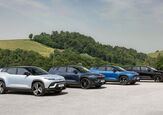
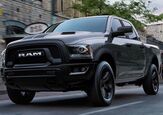
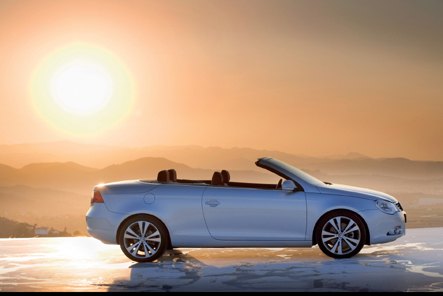
















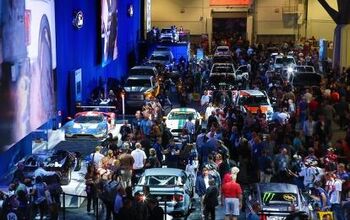
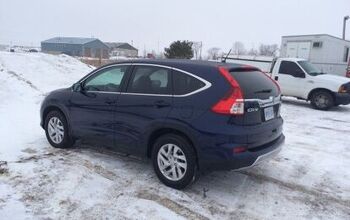
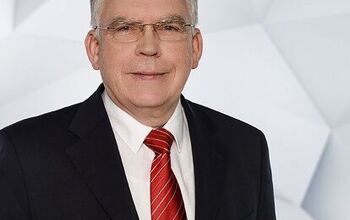
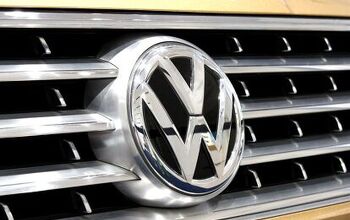










Comments
Join the conversation
True enough. But I'm not really looking for a new car right now. I'm trying to explain why some of us put up with VW's failings. It's to enjoy VW's virtues, which in this case, in this country, are unique. You pose some valid reasons not to invest heavily in VW stock right now. Like I say, love the car, hate the company. But none of that reduces the utility or value of my '02 Golf. On the contrary, the lack of new diesels has inflated the value of my TDI, which helps lead to the original story here. VW drivers tend to see both sides of these equations, taking the good with the bad. VW haters, IMHO, tend to be like fans of other technological near-monopolies, like Canon digital cameras and Microsoft operating systems. They insist that their way is not only the best way, it should be the only way.